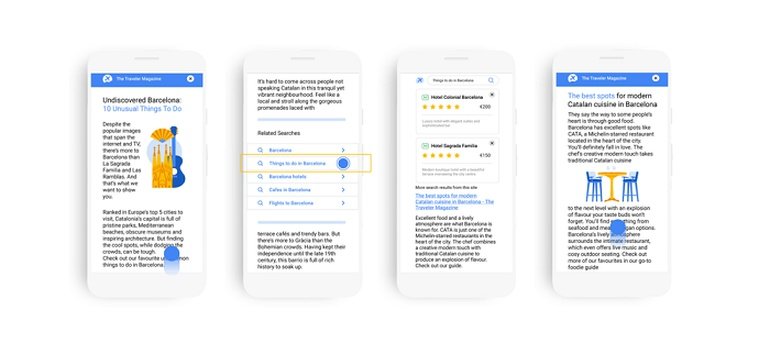SOCIAL
Google Launches New ‘Related Search for Content’ Ads to Help Improve On-Site Engagement

Google has added a new ad unit to its AdSense suite, with ‘Related Search for Content’, which aims to help drive users to more related elements on your site.
As you can see here, the new ad unit essentially works as a suggested content type prompt on your website, which re-directs users to more of your pages specifically related to the content that they’re viewing.
As explained by Google:
“Related search for content is a contextual navigation unit that shows users search terms related to the page they’re viewing on a publisher’s website. When they click a search term, they’re taken to a search results page on the publisher’s site where they can explore other relevant topics, including search ads. As a result, Related search for content can help publishers increase site engagement – including site traffic, pageviews and ad impressions – and drive incremental revenue.”
So it’s a means to both keep visitors on your site for longer, while also increasing ad exposure, branding, etc.
And importantly, Google also notes that this is ‘a privacy-preserving solution’.
“[Related Search for Content uses page content, instead of user data, to deliver relevant search terms. Meanwhile, ads on the search page target the search term the user clicked on, rather than actual user data.”
In line with Google’s broader shift away from user data tracking, the option could help deliver more tailored ad solutions, without the need for cookies.
Which will be gone soon. Google’s already outlined its plan to phase out tracking cookies, in favor of a new topic based model, which will enable ad and performance tracking without exposing user data.
Related Search for Content is one of its first ad solutions within this approach, and while its value will vary significantly, it could be worth experimenting with in your process.
Google says that interested advertisers can contact their account manager to activate AdSense for search for their AdSense account.
Source link


















You must be logged in to post a comment Login